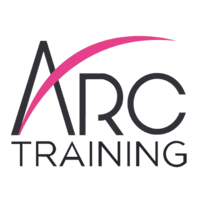
This role has a moderate level of AI exposure. AI can enhance efficiency for some tasks, but this job still relies on human skills and decision-making.
Explore all careersResidential Care Officers lead care teams in facilities, ensuring residents receive excellent personal care while managing staff and administrative tasks.
Get qualified to work as a Residential Care Officer with a course recognised across Australia. Speak to a training provider to learn more.





































In Australia, a full time Residential Care Officer generally earns $1,200 per week ($62,400 annual salary) before tax. This is a median figure for full-time employees and should be considered a guide only.
 Courses.com.au Team
Courses.com.au Team
Opportunities for Residential Care Officers in Australia are expected to grow very strongly over the next 5 years as more than 179,000 new jobs in aged and disability care open up around the country. This will include roles for supervisory roles. Residential Care Officers are employed by adult care centres, nursing homes, aged care facilities, group homes, and rehabilitation units.
Source: Australian Government Labour Market Insights
 Courses.com.au Team
Courses.com.au Team
Residential Care Officers need real world experience in personal care as well as supporting qualifications. As a minimum you’ll need a Certificate III in Individual Support, and if you are working with the elderly or disabled you might also consider additional VET qualifications in those areas. Try the Certificate IV in Disability and the Certificate IV in Ageing Support. They take about a year to complete and also provide leadership skills. You will also need a current first aid and CPR certificate, and in some cases an up-to-date influenza vaccination and police check.
 Courses.com.au Team
Courses.com.au Team
Browse occupations related to Residential Care Officer



If you're looking to pursue a rewarding career in the care sector, the Residential Care Officer courses in Whyalla offer an excellent starting point. With a variety of course options tailored to your level of experience, you can choose from a popular beginner course like the Certificate III in Individual Support (Ageing) CHC33021, perfect for those with no prior qualifications. Alternatively, if you have some experience, you might consider the advanced courses such as the Certificate IV in Ageing Support CHC43015 or the Certificate IV in Disability CHC43115, both of which will enhance your skills and open new career opportunities.
Whyalla boasts a growing demand for professionals in residential care, with roles such as Residential Care Worker and Community Care Worker increasingly sought after. Completing one of the Residential Care Officer courses in Whyalla will equip you with the essential skills needed for such positions, ensuring you can provide meaningful support to individuals in need. Other related roles you may be interested in include the Personal Carer and Aged Care Manager, both of which play crucial parts in the care landscape of Whyalla.
By enrolling in Residential Care Officer courses in Whyalla, not only will you enhance your career prospects, but you will also be contributing positively to your local community. Positions such as Aged Care Coordinator and Disability Support Worker are vital for improving the quality of life for those in your care. With comprehensive training and hands-on experience, you will be well-prepared to navigate the complexities of providing care while fostering a supportive environment for both clients and their families.